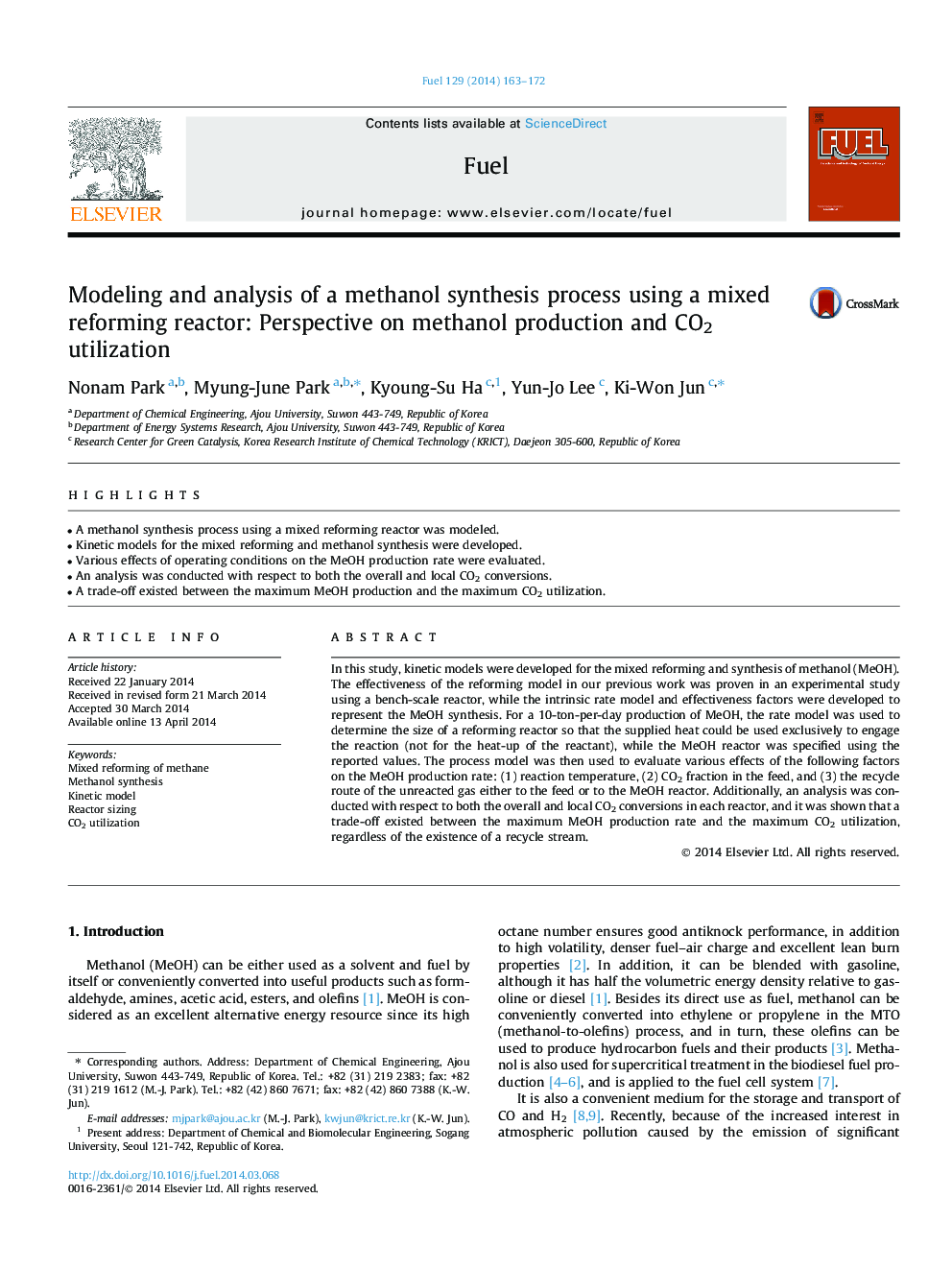| Article ID | Journal | Published Year | Pages | File Type |
|---|---|---|---|---|
| 6637621 | Fuel | 2014 | 10 Pages |
Abstract
In this study, kinetic models were developed for the mixed reforming and synthesis of methanol (MeOH). The effectiveness of the reforming model in our previous work was proven in an experimental study using a bench-scale reactor, while the intrinsic rate model and effectiveness factors were developed to represent the MeOH synthesis. For a 10-ton-per-day production of MeOH, the rate model was used to determine the size of a reforming reactor so that the supplied heat could be used exclusively to engage the reaction (not for the heat-up of the reactant), while the MeOH reactor was specified using the reported values. The process model was then used to evaluate various effects of the following factors on the MeOH production rate: (1) reaction temperature, (2) CO2 fraction in the feed, and (3) the recycle route of the unreacted gas either to the feed or to the MeOH reactor. Additionally, an analysis was conducted with respect to both the overall and local CO2 conversions in each reactor, and it was shown that a trade-off existed between the maximum MeOH production rate and the maximum CO2 utilization, regardless of the existence of a recycle stream.
Related Topics
Physical Sciences and Engineering
Chemical Engineering
Chemical Engineering (General)
Authors
Nonam Park, Myung-June Park, Kyoung-Su Ha, Yun-Jo Lee, Ki-Won Jun,
